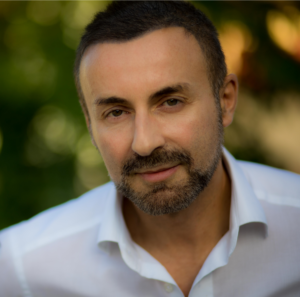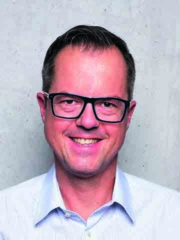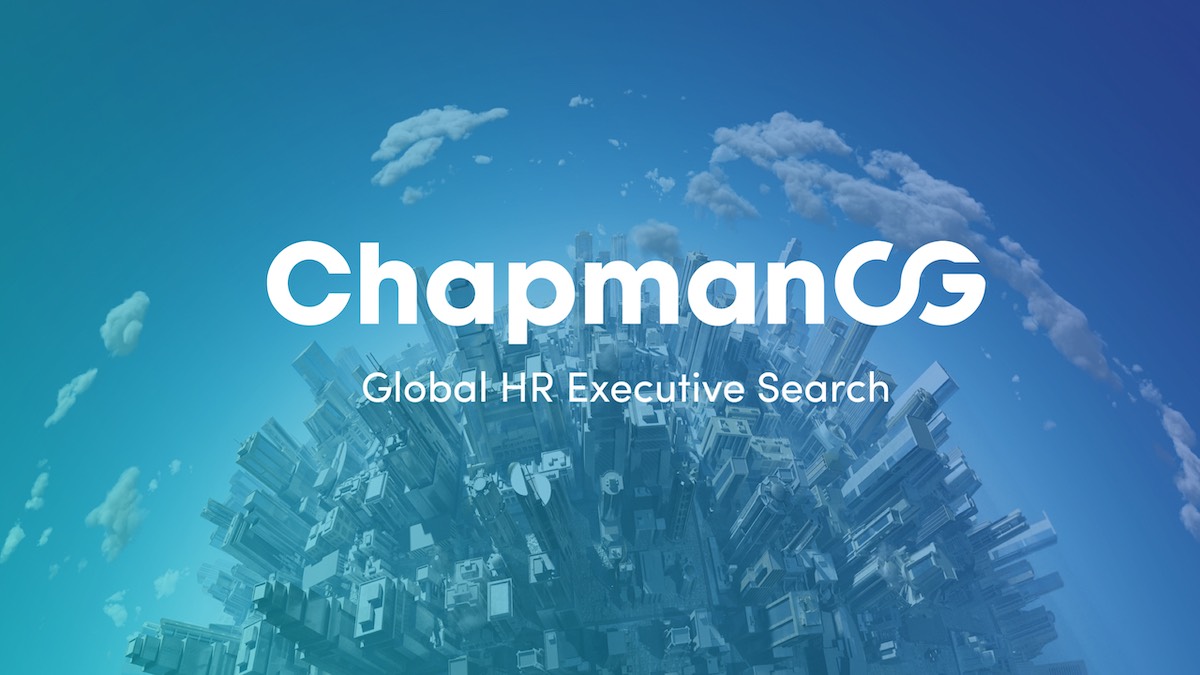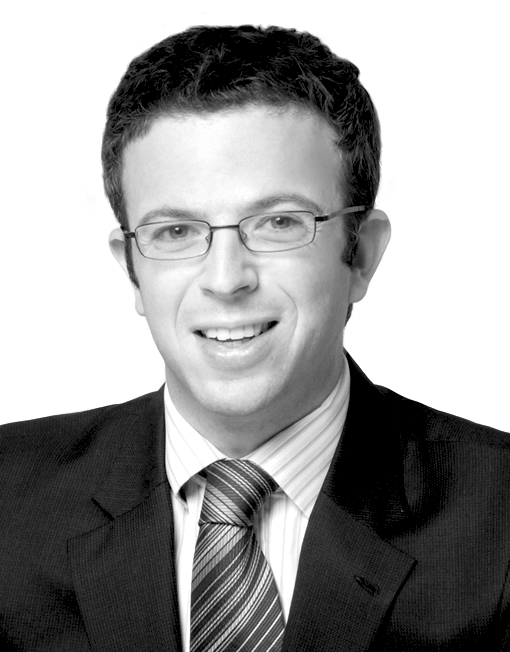The mindfulness movement is growing rapidly, and global leaders are beginning to turn to mindfulness to strengthen their leadership skills. ChapmanCG’s Kirsty Jucker spoke to global coach and HR leader Christophe Bagnoud about the role of coaching in developing mindful leadership.
What attracted you to executive coaching following your career as a senior HR leader?
As a senior HR leader over the last decade, I was fortunate to partner with leaders in various countries worldwide. I worked in Europe, the Middle East and Africa, North America and Latin America across several industries, including the retail, biotech and pharmaceutical industries. It was a very fast-paced environment. However, prior to that, I also worked for humanitarian organisation in the field in Africa and Asia, both for the United Nations and government agencies.
With this mix of experiences, I found that a common denominator of a successful leader –whether they’re in corporate America or in developing countries – is a high level of emotional intelligence, along with strive and purpose. As we all know, earning money is not enough anymore. Purpose – the knowledge that they are making a positive difference in the world – is key for leaders to feel fulfilled. Fulfilled leaders as we know, are the most successful and will drive strong results for the company.
Over the last decade, executive coaching was naturally part of my day-to-day work, and by far my favourite part. My idea of a strong HR leader is someone who always establishes strong and trustful relationships with the business to be a true business enabler.
Can you share a bit more about the role of coaching and leadership development, and how it can fit within a broader talent development programme?
In my opinion, coaching is a key component of any leadership development programme. Leadership is the art of leading others and oneself to create results for inspiration, direction, and motivation. However, most talent development programmes focus on leading others, but what about leading oneself?
It all starts with self-leadership, the process by which you influence yourself to achieve objectives. A coach can partner with leaders to build self-leadership as the foundation for authentic leadership of others to fully emerge. Self-leaders make better people leaders because their sense of self aligns with their life purpose and their company’s purpose. They are confident, motivated, and people naturally want to follow them.
What do you think are the key components of a broader leadership coaching programme within an organisation?
I would start with self-leadership as the foundation, followed by people management skills. I would then add all the components of emotional intelligence, which include self-awareness, self-management, empathy, motivation, and social skills. And of course, managing vision, culture, and purpose.
If your company is interested in applying concepts of mindful leadership, then I believe that you have a strong recipe for success.
Do you think we do enough to coach individuals from organisations? What more can HR leaders do to provide better coaching and leadership development support to their people at all levels?
I believe that most HR professionals coach to some level in their daily interaction with their clients and partners. However, they hardly have time to fully engage in a coaching relationship at work, and it’s also a very thin border between loyalty towards the company versus loyalty towards an internal coachee.
External coaches, on the other hand, especially the ones with broad experience in people development, perfectly fill those gaps. The definition of coaching, as per the International Coach Federation, is partnering with clients in a thought-provoking and creative process that inspires them to maximise their personal and professional potential.
The challenge for HR professionals is to be able to balance the employee’s personal and professional potential with the company’s needs. A good model, in my opinion, could be one that balances external coaching sessions with internal talent development programmes tailored to the company’s goals in order to get the best of both worlds.
What, if anything, kicked off your mindfulness journey?
What really started my journey with mindfulness is the gut feeling that our current model of leadership is not sustainable long term. Over the last few years, we have seen some amazing advances in technology that allow us to be connected 24 hours a day from virtually any corner of the planet. We make decisions that involve several global colleagues with each second. We have access to tons of information at all times. We can chat with the entire planet.
But instead of taking advantage of all that new technology to step back and let it do the work for us, instead of enjoying that increased productivity, in fact we mostly do the opposite. Being connected all the time means we are pushing the barriers between professional and personal lives until we are exhausted, overwhelmed, and feel powerless. For the first time last year in Switzerland, the number of labour accidents related to mental health took over the number of physical accidents last year.
A personal example is a close family member, who recently retired at 67 with burnout, just to move on into early stage of Alzheimer’s. And this is happening more and more frequently. Is this the way we want to enjoy technological advances? Is this the way we want to grow older? I don’t think that the upcoming generations, which are tomorrow’s workforce, will be putting up with this.
How does mindfulness change your leadership style?
I am a teacher in training at the Search Inside Yourself programme (SIYLI), which was developed by Google along with leading experts in neuroscience, business, and psychology. This applies scientific findings and turns to neuroscience to tell us about how the mind works. Some of the leading-edge research suggests that our brain changes its structure and function depending on where we direct its attention and what it focuses on. This is what we call neuroplasticity.
In a nutshell, emotional intelligence is a core set of skills that are learnable and that we are able to develop by training our attention and our awareness. These practices of training our attention and awareness is what we commonly refer to as mindfulness. By utilising the practices of mindfulness, we train our emotional intelligence skills, leading to better leadership, performance, and wellbeing.
Based on years of experience, I believe that emotional intelligence is the most common denominator of success amongst leaders.
What is mindful leadership? And how does this differ to more traditional styles of leadership?
Mindfulness means paying attention to what’s happening in the present moment. It is the cultivation of awareness that is intentional, authentic, and in the present moment. Its opposite is being on autopilot.
I am not talking about sitting on top of a mountain in isolation and meditating for weeks. I am talking about simple, short practices that can be easily learned and incorporated into our busy corporate and personal lives.
In corporate life, about 40% of our time is actually spent on mind-wandering. About 70% of leaders report being unable to be attentive in meetings.
Some recent research shows that mindful leaders drive change successfully, intensify focus, increase resilience, unleash creativity and innovative thinking, develop greater emotion regulation and communicate more effectively. They also inspire others to create sustainable leadership in a work environment with reduced stress, strong collaboration, and increased wellbeing and productivity.
This is almost too simple to be true. The solution is already within each of us. We just need a few minutes a day to put it into action. I do believe that mindful leadership offers a more sustainable approach and better long-term results than traditional leadership. It is easy to learn, from a few virtual sessions to two full days of onsite training, depending on how deep you want to go.
What can senior HR leaders do to start being more mindful leaders themselves?
Firstly, they need to be aware of how mindfulness is applied in a work environment. However, mindfulness is becoming the flavour of the day as more and more material is becoming available online. I suggest that HR leaders go after information that is fully backed up by scientific evidence and serious studies.
A few virtual sessions can explain the link between mindfulness and its impact on emotional intelligence and, ultimately, with targeted practice, improve leadership, performance, and wellbeing. Just imagine, as HR leads, the value that this would add to leaders’ development and overall workforce wellbeing.
Finally, I would suggest you try it for yourself. To learn the mechanisms and just a few minutes of practice a day can make a large difference. Contact me and I will happily guide you through a free virtual session.
How can HR leaders bring mindfulness into the workplace? And how do you bring other senior leaders on board so it can become a broader part of the company culture?
Mindfulness is slowly getting momentum in the corporate world. Search Inside Yourself was born at Google and rapidly became their most popular in-house course. What began as a small initiative within their organisation has now spread to over 30 countries and around 100 cities worldwide.
SAP is training all of their 90,000 employees worldwide on mindfulness. Companies like Ford, American Express, or Roche are now offering mindfulness courses.
In my opinion, innovative and creative companies that are looking for next steps in terms of leadership development and concerned about attracting the best talent in the millennial generation could welcome the idea of mindful leadership.
How do you think senior HR leaders can benefit from coaching or a more mindful style of leadership?
For most companies, the return on investment remains the more tangible measure of success when it comes to corporate life.
However, both executive coaching and mindful leadership can also yield results that are hardly measured in our society today – alignment between corporate and personal goals, fulfilment and wellbeing. So shall we work together in changing that? I am definitely in.
Read more from ChapmanCG, or listen to our podcasts on wellness and work-life-balance.
Christophe Bagnoud is a former senior HR leader with global experience working with leaders in 40+ countries. He is now a Global Executive Coach and Senior HR Consultant. He focuses on executive leadership, transition coaching and HR consulting.
He also teaches mindful leadership so that his clients can fully leverage their talents and potential to successfully navigate today’s complex global business environment. He is passionate about coaching, leadership development, emotional intelligence and mindfulness. He offers virtual coaching sessions and teaches mindful leadership in the work environment, both virtually or onsite.
www.globalcoach.ch



 René Rosso
René Rosso Stanislav Medvedev
Stanislav Medvedev Tim Rayner
Tim Rayner  Andrea Merrigan
Andrea Merrigan Orelia Chan
Orelia Chan Fleur Daniell
Fleur Daniell Finian Toh
Finian Toh Nicola Hasling
Nicola Hasling Stefanie Cross-Wilson
Stefanie Cross-Wilson
